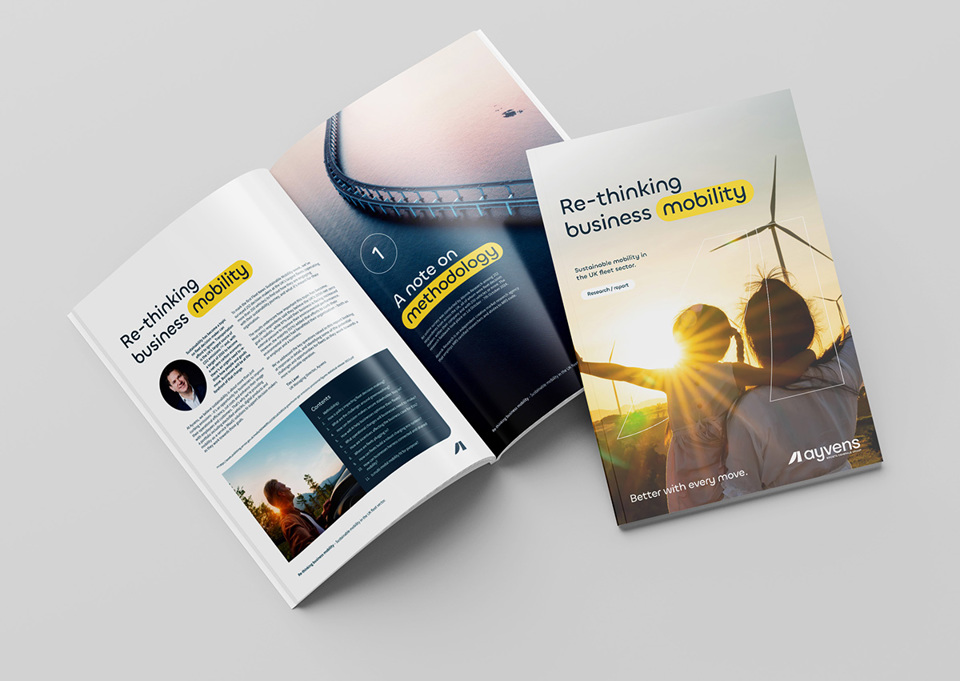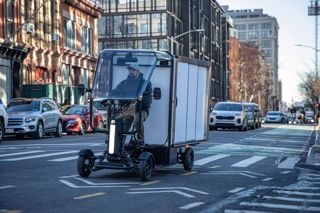Motivated by internal sustainability targets and incentivised by tax, fleets have become the driving force behind the UK’s electric vehicle transition. Full EVs accounted for more than 70% of new business contract hire deliveries and almost all salary sacrifice cars in Q2 2024, according to the BVRLA, while the Autumn Budget has confirmed company car tax advantages for those vehicles will remain until at least 2030. There’s often a strong business case for making the switch, but the human element is key.
Ahead of the first Sustainable Mobility Week, Fleet News and Ayvens worked together to find out how 252 decision-makers at some of the UK’s largest fleets (250+ vehicles) are working towards a more sustainable operation. Although electrification can help reduce emissions from transport, which is typically one of the largest contributors within a fleet-operating business, stakeholder buy-in can be hard to secure.
Proving a business case
More than a third (35%) of respondents said resistance from management and drivers had impacted their electric vehicle plans. However, businesses who have already started electrifying their fleet were more likely to report improved employee retention and engagement as a result of their net zero policy (56%) than the overall sample.
Decision-makers recognise the need to make wider changes. Almost half (48%) of electric vehicle fleets reported introducing route planning, driver training and changes to vehicle maintenance strategies to curb energy usage, compared to 40% of all respondents. Most (92%) survey responses also agreed that sustainability-focused driver training could benefit fleet efficiency. That share was even higher among LCV and HGV fleet operators, at 96% in both cases.
Some of the traditional management-level barriers are eroding. Battery packs, which are the most expensive part of an electric vehicle, have fallen by 82% between 2013 and 2023 according to the latest BloombergNEF figures, while improvements in energy density are providing longer ranges in more compact vehicles. Coupled with low company car tax, 100% capital allowances and grant funding for vans, only 29% of respondents said their rate of electrification was being delayed by the cost of the vehicles.
Driver frustrations
However, Aaron Powell, fleet and logistics director at SpeedyHire, says the experience for drivers can differ between vehicle types. With a 2040 net zero CO2 target, the business has switched its truck fleet to hydrotreated vegetable oil (HVO), introduced an EV-only company car choice list, and started deploying Ford e-Transit electric vans last year.
“When they're building charge points - and we've had this debate for the last two years - the spaces are too small for commercial vehicles. Our vans take up two spaces if you go into a service station, the spaces are just fit for a car. If you stick a couple of vans in there, it's taken up the whole bank,” he says.
“New charging infrastructure needs to be more commercial vehicle orientated, and it’s mega expensive on the road. Drivers can charge wherever they want, and the biggest frustration is having to have so many apps on their phone. We give our drivers a commercial fuel card, but that still doesn't do every charge point. All fuel card providers should just club together.
“We have a lot of engineers who take their larger vans home. They love the vehicle, but finding somewhere to charge in the morning, before they leave, is their biggest moan right now.”
Machine learning
Pressure to report and improve environmental performance is amplifying the need for better data. A third (34%) of survey respondents are using fleet management software or telematics to reduce their emissions, and the results suggest this is informing better decision-making.
That demographic was more likely to have introduced driver training or made improvements to route management (45%) than the full sample (40%) and more positive about the potential impact of that training. Almost half (48%) strongly agree that training improves fleet efficiency, compared to 36% overall.
Decision-makers are also utilising new technology to inform changes within their fleet. Artificial intelligence (AI) can aggregate and analyse large volumes of fleet data quickly, enabling spotting trends and optimising routes, maintenance schedules, loading and even driver behaviour. Almost all (98%) survey respondents believe AI will be an important tool for reducing CO2 emissions, while 31% are already utilising it.
Notably, sole fleet-decision-makers were much more likely to rate AI as “very important” for their decarbonisation strategy (74%) than those who share that responsibility with other stakeholders (37%). They were also more likely to be utilising it already (33% vs 27%) to help meet environmental commitments.
Like most emerging technologies, early adopters have faced challenges. Four in ten (40%) respondents said the tools are too difficult to use, while 32% had faced resistance from customers and external stakeholders and 30% raised concerns about data privacy and security. Fleets who are already using AI were fractionally less likely to cite usage difficulties (39%), but noticeably more likely to report resistance from external stakeholders (46%) and concerns about cybersecurity (40%).
The survey also reflects concerns about the effects on the workforce. Almost a quarter (23%) of respondents said they were worried that introducing AI could lead to job losses, and this was much higher among sole decision-makers (25%) than those who work with other stakeholders (16%). Fleet manager expertise is critical for that sustainability strategy. Whereas 37% of sole decision-makers said they felt “completely in control” of their company’s decarbonisation process, that share falls to just 16% if decisions are made jointly. It's a human aspect no business should overlook.




















Login to comment
Comments
No comments have been made yet.